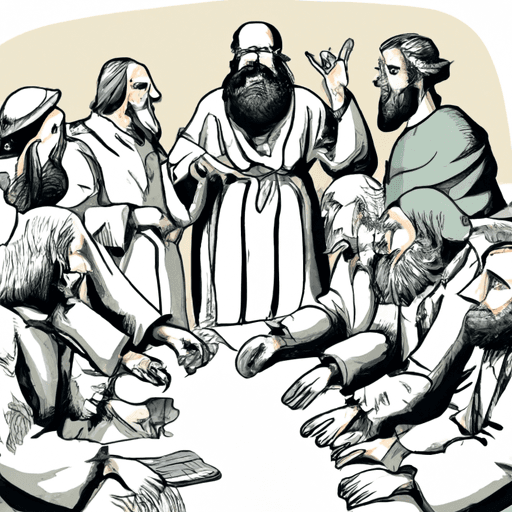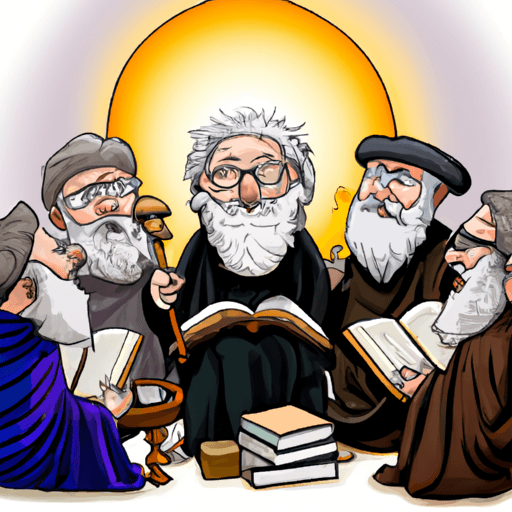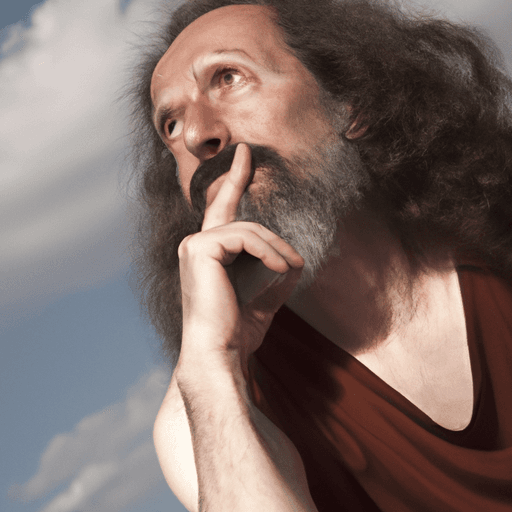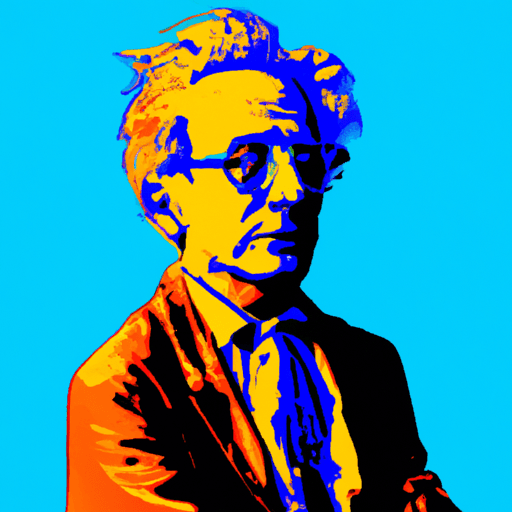
Philosophy: Where to begin?
January 15, 2023
Wise Phil
philosophy
Philosophy is a discipline that explores fundamental questions about the nature of reality, existence, knowledge, ethics, and more. It can be traced back to ancient civilizations such as Greece and China and has since evolved to encompass a wide range of sub-disciplines and perspectives.

The word philosophy comes from the Greek words Philos meaning love and Sophia meaning wisdom. Together, the word can be understood as the love of wisdom.

Philosophy is not limited to any specific era and its questions are relevant in many aspects of our lives. The subject is broad, it includes many different perspectives, and it can be approached from various angles such as practical, theoretical, and historical.
Philosophical approaches lead to schools of thought by giving rise to distinct groups of philosophers who share similar ideas, methods, or perspectives. These groups may also be referred to as traditions or movements.
Philosophy is not only a study of the past but also a way to think critically about the present and shape the future.

Philosophy is a discipline that encourages curiosity, open-mindedness, and the pursuit of wisdom.
Ancient Philosophy
The ancient philosophers were driven by a quest for knowledge and understanding. They believed that by asking questions and seeking answers, they could gain wisdom and a deeper understanding of the world and themselves. This pursuit of wisdom was not limited to purely abstract or theoretical knowledge, but also included practical wisdom and knowledge of how to live a good life.
Asking questions was central to the ancients. It was believed that they could challenge their assumptions and uncover deeper truths by questioning their own beliefs and the beliefs of others. The ancient philosophers believed that by engaging in philosophical inquiry, they could gain understanding to guide their actions. This understanding can serve as a guide for our actions and decision-making, leading us towards virtuous behavior, and providing a space for moral reflection and contemplation.
Modern Philosophy

Modern philosophers emphasized the role of reason and skepticism in their works. They believed that reason was the best tool for understanding the world and making informed decisions. They also recognized the limitations of human understanding and believed that skepticism was necessary in order to avoid dogmatic thinking and maintain a critical perspective.
The relationship between mind and body was another central theme of modern philosophy. Philosophers like Descartes and Leibniz debated whether the mind and body were separate entities or if they were inextricably linked. This discussion laid the foundation for the development of dualism, the idea that the mind and body are separate but connected, and paved the way for later discussions about the nature of consciousness and the mind-body problem.
Individualism and freedom were important concepts in modern philosophy. Philosophers like Hobbes, Locke, and Rousseau believed that individuals had inherent rights and freedoms that should not be violated by the state. This emphasis on individual rights and freedoms laid the foundation for the development of liberal democracy and the modern notion of individual liberty.
In summary, modern philosophers were concerned with reason and skepticism, the relationship between mind and body, and the importance of individualism and freedom. Their ideas and debates laid the foundation for many of the philosophical and political developments of the modern era.
Postmodern Philosophy

Postmodern philosophy is characterized by the rejection of grand narratives or universal ideologies that seek to explain the world as a whole. Postmodern thinkers believed that these narratives were limited and failed to account for the complexity and diversity of human experience.
Postmodernists critique Enlightenment values like reason, objectivity, and progress. They argued that these values were not as universal or impartial as they appeared and that they served the interests of dominant power structures.
Relativism and the de-centering of the subject are important concepts in postmodern philosophy. Relativism refers to the idea that knowledge and truth are relative to the individual and context and not the universal or absolute. The rejection of absolute truth led to a de-centering of the subject. Postmodern philosophers argued that the individual subject was not the center of the universe and that experiences and perspectives were just one among many. They challenged traditional notions of the autonomous, self-contained individual, instead highlighting the interdependence and interconnectedness of individuals to the wider world.
Postmodern thinkers argue that the subject is not simply a passive observer of the world but is instead actively shaped by the culture, language, and power structures in which they exist.
Comparison and Contrast
Ancient, modern, and postmodern philosophy can be contrasted and compared in several ways:
- Concept of Reality: Ancient philosophy emphasized the search for wisdom and understanding of the nature of reality, often relying on the concepts of metaphysics, ethics, and epistemology. Modern philosophy, on the other hand, focused on reason, skepticism, and the development of empirical science. Postmodern philosophy, in turn, critiques grand narratives and universal truths and highlights the relativism and de-centering of the subject.
- Role of the Individual: Ancient philosophy placed importance on the development of virtue and ethics in the individual, emphasizing the importance of the individual's place in society and the wider world. Modern philosophy focused on individualism, freedom, and the relationship between mind and body. In contrast, postmodern philosophy critiques the idea of individual autonomy and instead emphasizes the interconnectedness and interdependence of the individual with the wider world.
- Concept of Knowledge: Ancient philosophy saw philosophy as a means to attain wisdom and understanding. Modern philosophy placed emphasis on reason and skepticism, and the development of empirical science. Postmodern philosophy critiques the idea of objective or universal knowledge and instead highlights the relative and context-dependent nature of knowledge and truth.
- Grand Narratives: Ancient philosophy sought to provide a comprehensive explanation of the world and the human experience. Modern philosophy developed a number of grand narratives, such as the Enlightenment, which sought to provide universal explanations and solutions. In contrast, postmodern philosophy critiques these grand narratives and highlights their limitations and biases.

While each era offers a unique perspective and understanding of the world, they also build upon and critique one another, leading to a rich and diverse philosophical tradition.